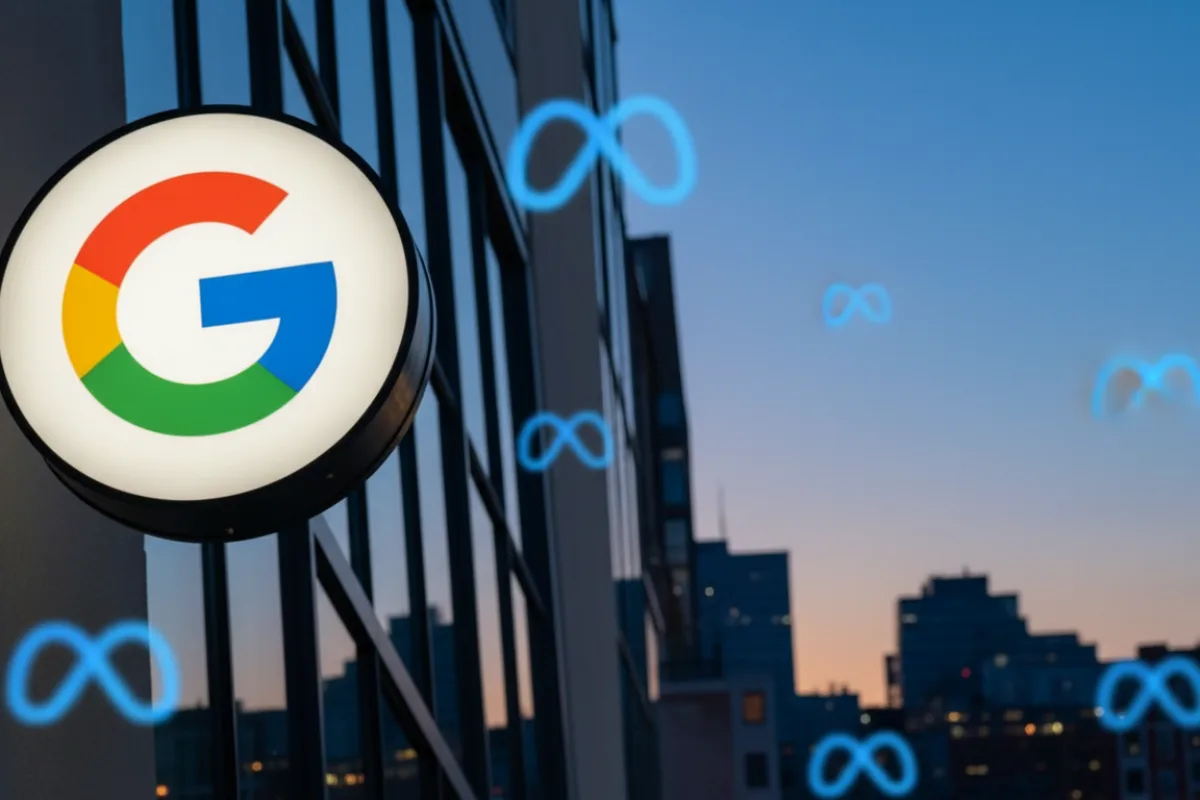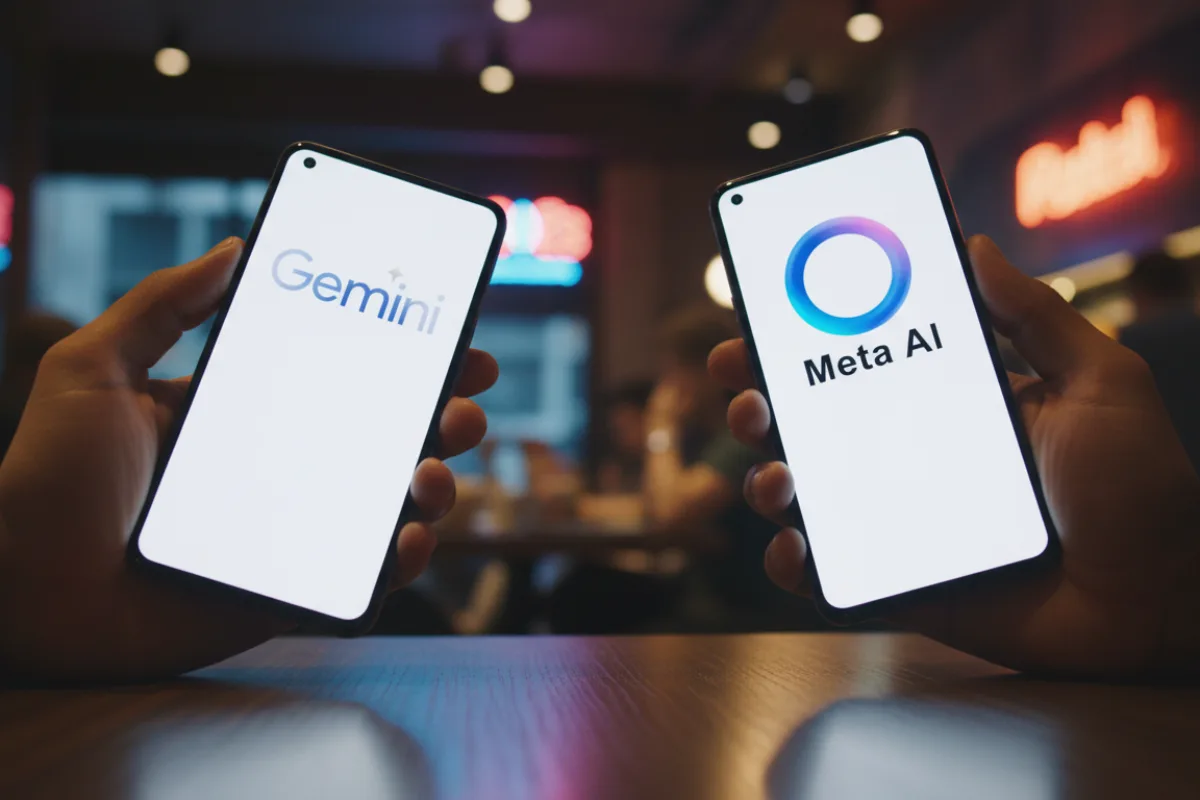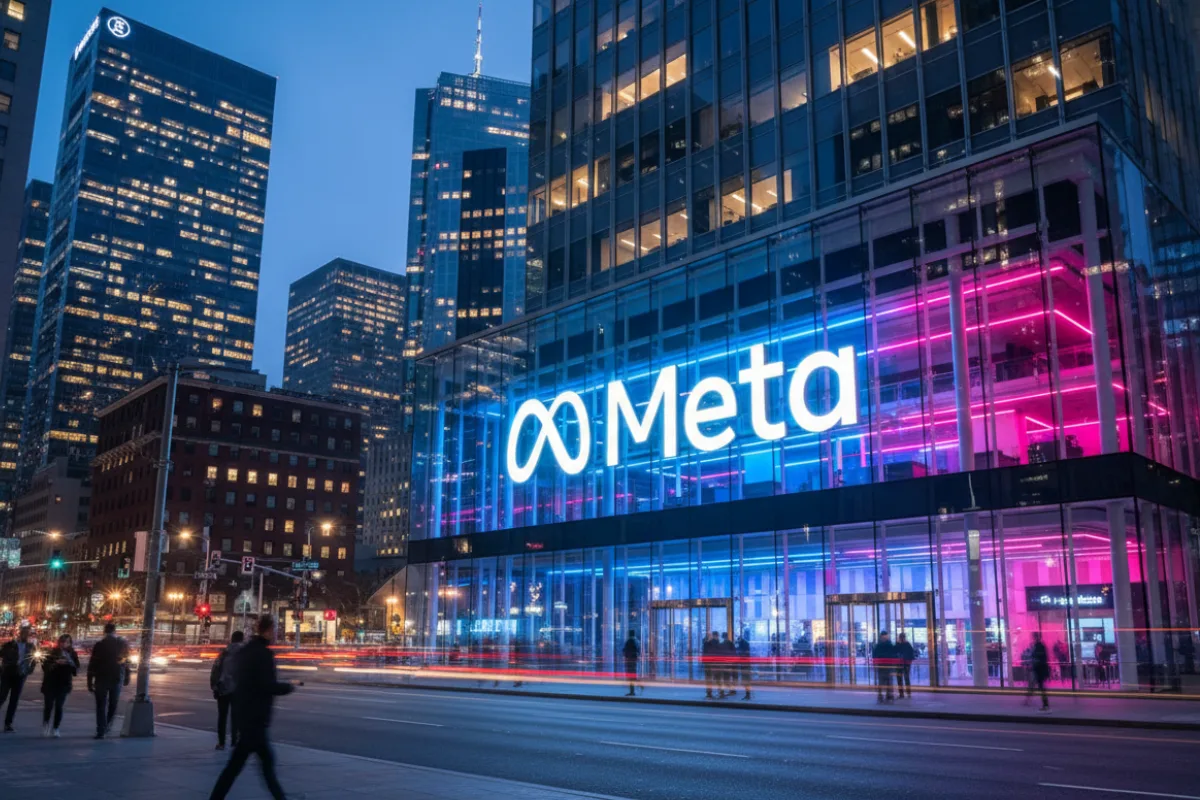Introduction
Meta taps Google’s Gemini for ads is the latest headline in ad-tech: people familiar with the conversations say Meta employees have discussed fine-tuning Google’s Gemini (and related models) on Meta’s ad data to improve targeting and ad recommendations.
The talks are early and may not lead to a deal, but the report signals how big tech is re-thinking AI partnerships amid heavy pressure to improve ad performance.
Meta taps Google’s Gemini for ads to improve ad targeting
According to reporting by Reuters and The Information, Meta has held preliminary discussions with Google Cloud about using Gemini — and possibly open-source Gemma models — to help power ad targeting and ad summarization features.
Company spokespeople have denied any agreement, saying external models are sometimes used for benchmarking. Still, internal proposals to fine-tune Gemini on Meta’s ad signals were floated by staffers.
Why this matters: Meta and Google are fierce competitors in digital advertising. Any partnership — even limited benchmarking or tooling — would be unusual and could shift how ad AI is developed across the industry. Advertisers and investors watch such moves closely because better AI can raise advertiser return on ad spend and change budgets across platforms.
How Meta would use Gemini to power ads

Sources say ideas under discussion included:
- Fine-tuning Gemini on Meta’s internal ad engagement and conversion signals to improve targeting accuracy.
- Using models to summarize or re-write creatives so ads better match likely customers.
- Benchmarking model performance against Meta’s in-house systems to close performance gaps. Meta stated it routinely evaluates third-party tools for this purpose.
These are early, technical proposals. Any real deployment would require heavy testing for privacy, data controls and regulatory reviews — especially since ad targeting uses detailed user data.
Technical and legal hurdles
Using a rival cloud or model raises questions: how would Meta protect user data when fine-tuning external models? Would data need to be anonymized or processed inside Meta’s secure environment? Regulators in the U.S. and EU are increasingly focused on data flows and model audits, so a partnership would need strict safeguards
What ad buyers and publishers should watch
If Meta were to improve targeting with Gemini’s help, advertisers could see better ad relevance and possibly higher ROI, which might shift spending between platforms. Publishers that rely on Meta’s ad ecosystem could see changes in CPMs and demand. Still, no buyer should assume immediate change: the reports stress the talks are exploratory.
Why Meta might consider outside models
Meta has invested heavily in its own AI, but rapidly rising expectations and new ad formats put pressure on speed and efficiency. Using external models for benchmarking or specific tasks can accelerate development. Analysts say Meta’s interest in Gemini highlights industry realities: even well-funded teams look outward when performance gaps arise.
Competitive and market impact

Market reaction to the reports was visible: Google shares rose on the news while Meta’s moved little, reflecting investor views on which firm gains strategic edge. A concrete partnership would complicate rival dynamics — but it could also create industry norms for more open model-sharing, provided antitrust and data-privacy issues are addressed.
Bottom line: Reports that Meta taps Google’s Gemini for ads underline how AI is reshaping advertising — not just technically but strategically. Even exploratory talks matter: they show firms are pragmatic about using best-of-breed models, while regulators and advertisers must prepare for new data governance and competitive questions.
Frequently Asked Questions
Did Meta confirm it will use Gemini?
No. Meta said talks are preliminary and that it often evaluates third-party tools for benchmarking. No formal agreement has been announced.
What would Meta use Gemini for in ads?
Reported ideas include fine-tuning Gemini on ad signals to improve targeting, and using models to summarize or rewrite creatives to match likely customers. These are proposals, not final plans.
Are there privacy risks if Meta taps Gemini?
Yes. Fine-tuning with Meta’s ad data would require strict privacy controls and possibly in-house model training to prevent data leakage. Regulators would scrutinize any data sharing.
Would this change ad prices or performance?
Potentially. Better targeting can raise ROI for advertisers and shift ad spend. But changes would depend on real-world testing and rollout scale.
How likely is a formal partnership?
Reports describe early internal discussions; many factors — technical, legal and strategic — would determine whether talks lead to a deal. Both firms have declined to confirm.
Author note: I’m a tech journalist who compiled this from Reuters and The Information. Reports describe early internal discussions; I used cautious language where details were unconfirmed. I focused on real reporting and flagged risks around data and regulation. I’ll update if either company announces a formal deal.






1 thought on “Meta Eyes Google’s Gemini to Boost Ad Targeting — What It Means Now”